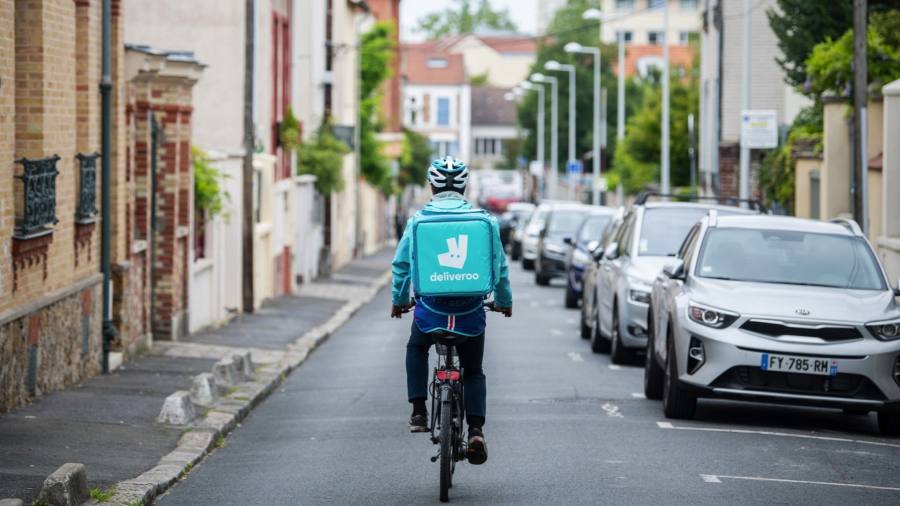EU member states have reached a long-awaited agreement on rules that pave the way to give greater employment protection to the bloc’s 28mn gig economy workers.
The agreement on Monday on industry rules could eventually allow workers, including Uber drivers and food delivery riders, to receive social security and other benefits. The deal unlocks drawn-out negotiations among the 27 member states that were delaying the drafting of the legislation.
“The gig economy has brought many benefits to our lives, but this must not come at the expense of workers’ rights,” said Paulina Brandberg, the Swedish minister for gender equality and working life who chaired discussions in Luxembourg.
“The council’s approach strikes a good balance between protecting workers and providing legal certainty for the platforms that employ them,” she added.
Most of the workers at companies such as Deliveroo are registered as self-employed. Under the proposals agreed by the European Council, companies that control workers’ hours, what they wear at work and restrict whether they can accept or turn down work will have to class them as employees and shoulder the extra costs.
The deal also includes the first EU rules on the use of artificial intelligence in the workplace, with companies obliged to guarantee human oversight of their automated monitoring and decision-making systems.
Member states will now engage in discussions on the proposals with the European parliament, with time running out to secure the package before the end of the EU’s legislative cycle in summer 2024.
Talks between ministers broke down in December. Countries were split between those willing to accept European Commission proposals, involving fewer conditions before workers are classed as employees, and those calling for a less restrictive regime for businesses.
The deadlock was broken at a meeting in Luxembourg on Monday. While no member states voted against the plans, Germany, Spain, Greece, Estonia and Latvia abstained on the text, two EU diplomats said.
However, in a sign of persistent division among member states, eight so-called “ambitious” countries, including Spain and the Netherlands, said the agreed position was “less ambitious and effective” than previous proposals by the commission.
Their abstention points to a lack of unanimity among countries and to potential division as talks get under way, said an EU official, especially over the status of an “employee”.
The European parliament has adopted a position that would classify gig workers as employees under fewer conditions than the council position, leading to intense discussions ahead for the two institutions, these people said. “They will need to find a solution that works,” said a person with intimate knowledge of the discussions.
The “employee” definition has huge implications for companies such as Uber and Deliveroo. The more workers registered as employees rather than as self-employed, the more these companies will be liable to pay for employment benefits such as parental leave and social security.
As a result, the text has been one of the most heavily lobbied in Brussels in recent years, according to MEPs and diplomats. Chief executives, including Uber boss Dara Khosrowshahi, and Markus Villig, the head of ride-hailing rival Bolt, this month warned in a letter to the Financial Times that employment conditions would take away couriers’ independence.
Anabel Diaz Calderon, vice-president at Uber, said: “Instead of providing legal certainty and mandated protections for genuinely self-employed workers, both the council and parliament’s positions would likely force hundreds of thousands of people out of work, and push a small minority onto employment contracts they don’t want.”
Read the full article here




